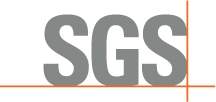SGS has received accreditation as a Certification Body for the Aquaculture Stewardship Council (ASC). It can now offer independent assessment against standards for seaweed and twelve species of farmed seafood.
Rising populations and an increasing dependence on seafood mean concerns are being raised over the social and environmental impact of aquacultural practices. In the last fifty years, demand for seafood has doubled and, with the global population expected to reach nine billion by 2050, it is predicted consumption levels will continue to rise.
Commercial fishing is already at unsustainable levels, leading to an increasing reliance upon aquaculture. More than half of all fish consumed around the world now comes from aquaculture operations and this has led to concerns about their impact on biodiversity, pollution, diseases, chemical and medicine use, and wild seed collection.
In addition, it has also raised fears over the use of child labour, and its social impact on community interactions, indigenous people interactions and equitable working environments.
ASC was founded in 2010 by the World Wildlife Fund for Nature (WWF) and the Sustainable Trade Initiative (IDH) to promote best practice relating to the environmental and social impact of aquaculture. It promotes the use of sustainable farming practices whilst increasing production to meet the growing demand for seafood.
SGS has been recognised as an ASC Certification Body and can now offer independent assessment against standards relating to seaweed and twelve species of farmed seafood.
SGS can offer third-party assessment against the standards ASC has developed, in combination with scientists, conservations groups, non-government organisations (NGO), producers, processors, retailers and the food service industry, for:
- Abalone
- Bivalves (clams, mussels, oysters, scallops)
- Freshwater trout
- Pangasius
- Salmon
- Shrimp
- Tilapia
- Seriola and cobia
In addition, SGS can also offer certification against ASC’s joint standard for seaweed, developed in partnership with the Marine Stewardship Council (MSC).
SGS operates a worldwide network of offices and auditors in all seafood producing countries and provides independent third-party assessment against ASC standards. Applicants who receive certification can apply to use the ASC logo on marketing material, allowing them to demonstrate their commitment to responsible aquaculture and giving them access to the growing global market for certified seafood. To qualify, a facility must have a Chain of Custody audit and undertake an ASC Logo Licensing Agreement and/or Marketing Undertaking Agreement.










